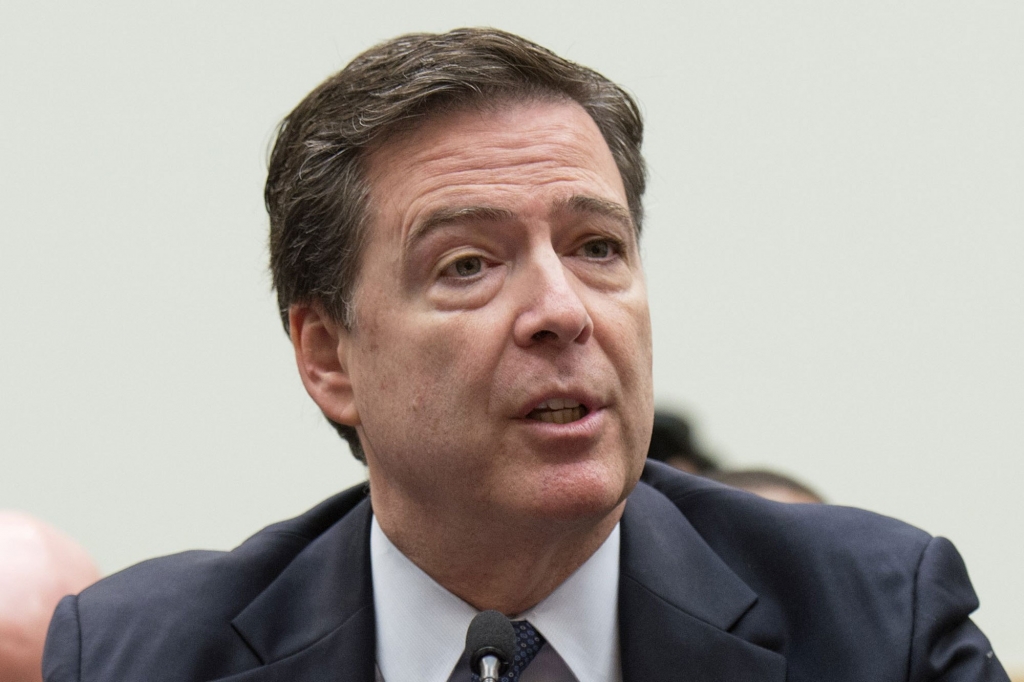-
Tips for becoming a good boxer - November 6, 2020
-
7 expert tips for making your hens night a memorable one - November 6, 2020
-
5 reasons to host your Christmas party on a cruise boat - November 6, 2020
-
What to do when you’re charged with a crime - November 6, 2020
-
Should you get one or multiple dogs? Here’s all you need to know - November 3, 2020
-
A Guide: How to Build Your Very Own Magic Mirror - February 14, 2019
-
Our Top Inspirational Baseball Stars - November 24, 2018
-
Five Tech Tools That Will Help You Turn Your Blog into a Business - November 24, 2018
-
How to Indulge on Vacation without Expanding Your Waist - November 9, 2018
-
5 Strategies for Businesses to Appeal to Today’s Increasingly Mobile-Crazed Customers - November 9, 2018
Phone encryption a ‘vicious guard dog’ in crime probes
Lawmakers took up the issue of smartphone encryption a day after Apple notched a win in NY, where a US magistrate judge denied the governments bid to force the company to help it gain access to another iPhone, one that belonged to a drug dealer.
Advertisement
FBI Director James Comey likened Apple’s built-in iPhone security to a “vicious guard dog” on Tuesday as Congress heard arguments over who can unlock smartphones belonging to criminal suspects – a high-stakes conflict between privacy and national security that has divided federal courts. Should the government need them to break into their devices, the San Bernardino iPhone case could be used as a precedent and force them to comply with such requirements. “We’re asking Apple to take the vicious guard dog away and let us pick the lock”, Comey said before the House Judiciary Committee.
In testimony before the House Judiciary Committee hearing, Sewell said, “It will weaken our safety and security, but it will not affect the terrorists”.
The civil liberties group’s lawyers agreed, arguing that the court order would practically make the company a de facto arm of the Federal Bureau of Investigation. “If the government prevails, then this case will be the first of many requiring companies to degrade the security and to undermine the trust in their products so essential to privacy in the digital age”. “There already is a door on that iPhone”, Comey said.
The Justice Department has argued that the request is limited in scope and is necessary because it has been unable to unlock the iPhone used by Syed Rizwan Farook, who, along with his wife, killed 14 people and injured almost two dozen in a shooting rampage in December. “So one way to simply resolve this is for Apple to work with its own customer and work out a way to resolve this issue”.
The agency’s top official admitted during the hearing Tuesday that his agency missed an opportunity to get into the phone themselves by seeking to reset the its password through the Apple’s remote server system called iCloud.
There are “no demons in this debate”, Comey said.
“The big question for our country is how much privacy are we going to give up in the name of security”, Rep. Jason Chaffetz, R-Utah, told Comey, according to The New York Times.
But Carter warned against letting one case determine future policy and said a law hastily written in “anger or grief” would be the wrong approach.
Advertisement
U.S. Attorney General Loretta Lynch said on Tuesday at the RSA Cybersecurity conference in San Francisco that she was “disappointed” by the Brooklyn ruling, and rebuffed Apple’s claim that its Fifth Amendment protection against self-incrimination was being violated.




























